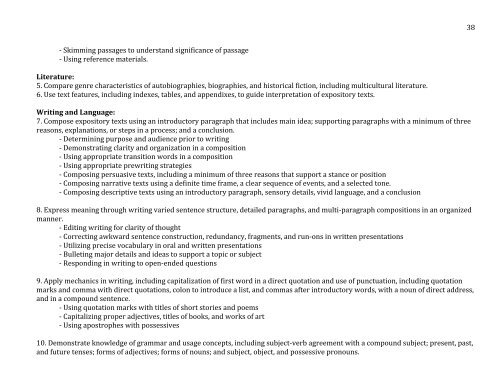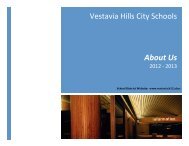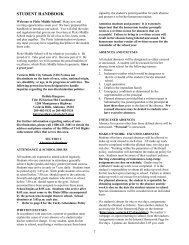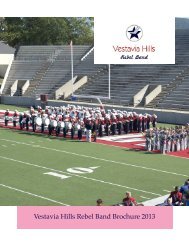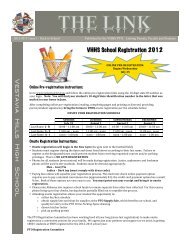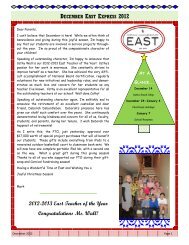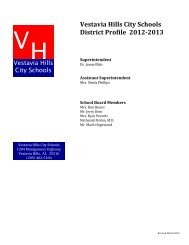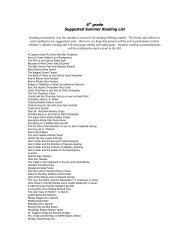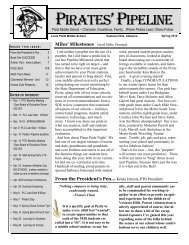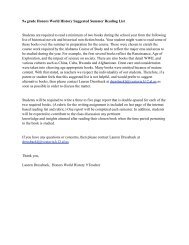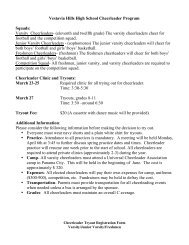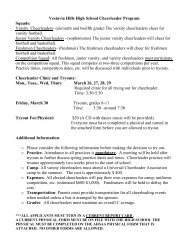5th Language Arts 5th Grade Language Arts 2008 StoryTown ...
5th Language Arts 5th Grade Language Arts 2008 StoryTown ...
5th Language Arts 5th Grade Language Arts 2008 StoryTown ...
You also want an ePaper? Increase the reach of your titles
YUMPU automatically turns print PDFs into web optimized ePapers that Google loves.
38 -‐ Skimming passages to understand significance of passage -‐ Using reference materials. Literature: 5. Compare genre characteristics of autobiographies, biographies, and historical fiction, including multicultural literature. 6. Use text features, including indexes, tables, and appendixes, to guide interpretation of expository texts. Writing and <strong>Language</strong>: 7. Compose expository texts using an introductory paragraph that includes main idea; supporting paragraphs with a minimum of three reasons, explanations, or steps in a process; and a conclusion. -‐ Determining purpose and audience prior to writing -‐ Demonstrating clarity and organization in a composition -‐ Using appropriate transition words in a composition -‐ Using appropriate prewriting strategies -‐ Composing persuasive texts, including a minimum of three reasons that support a stance or position -‐ Composing narrative texts using a definite time frame, a clear sequence of events, and a selected tone. -‐ Composing descriptive texts using an introductory paragraph, sensory details, vivid language, and a conclusion 8. Express meaning through writing varied sentence structure, detailed paragraphs, and multi-‐paragraph compositions in an organized manner. -‐ Editing writing for clarity of thought -‐ Correcting awkward sentence construction, redundancy, fragments, and run-‐ons in written presentations -‐ Utilizing precise vocabulary in oral and written presentations -‐ Bulleting major details and ideas to support a topic or subject -‐ Responding in writing to open-‐ended questions 9. Apply mechanics in writing, including capitalization of first word in a direct quotation and use of punctuation, including quotation marks and comma with direct quotations, colon to introduce a list, and commas after introductory words, with a noun of direct address, and in a compound sentence. -‐ Using quotation marks with titles of short stories and poems -‐ Capitalizing proper adjectives, titles of books, and works of art -‐ Using apostrophes with possessives 10. Demonstrate knowledge of grammar and usage concepts, including subject-‐verb agreement with a compound subject; present, past, and future tenses; forms of adjectives; forms of nouns; and subject, object, and possessive pronouns.


